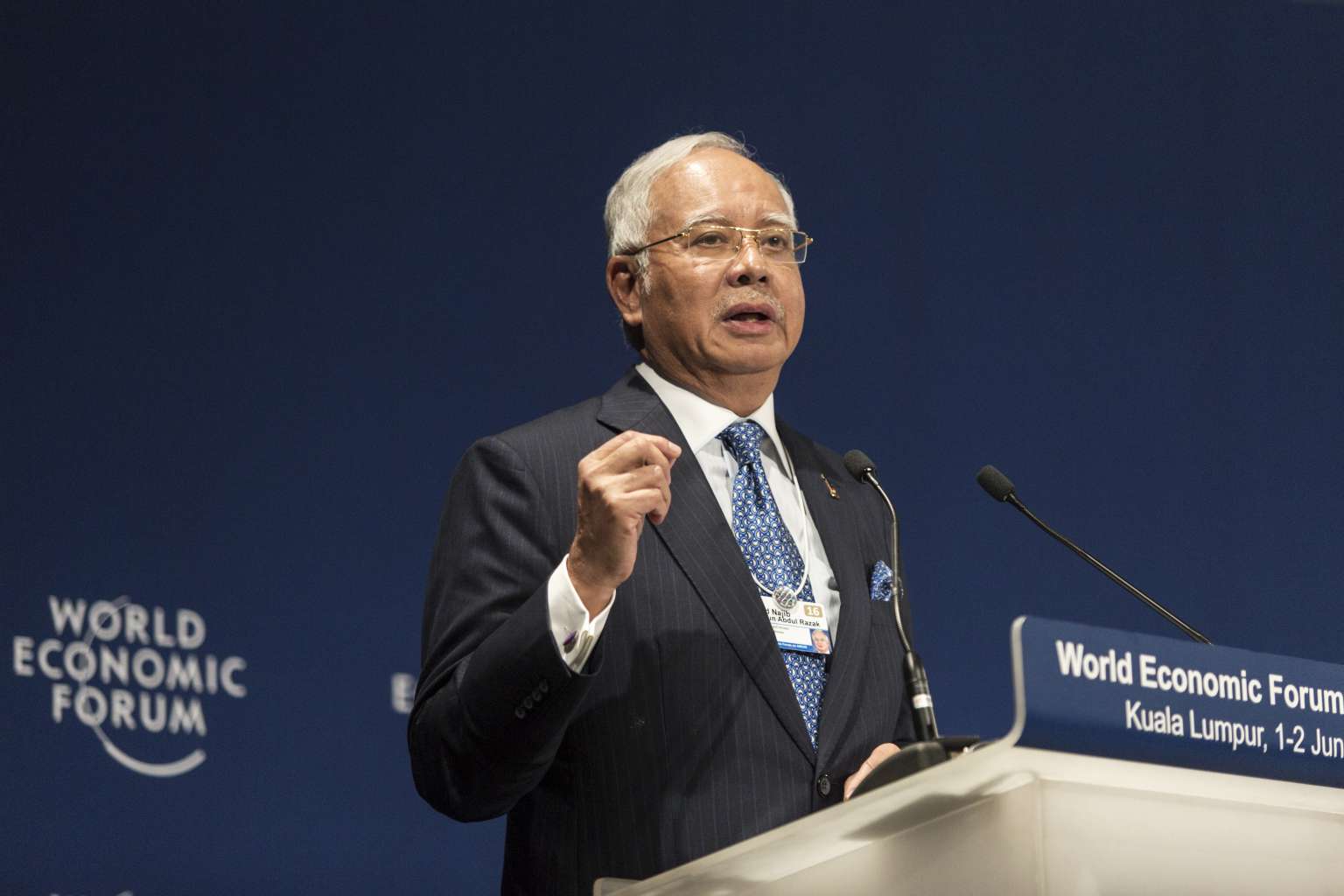Malaysia enacts controversial National Security Council law
Sign up now: Get insights on the biggest stories in Malaysia

Malaysia's PM Najib Razak speaks during the World Economic Forum for ASEAN in Kuala Lumpur, Malaysia, on June 1.
PHOTO: BLOOMBERG
Follow topic:
KUALA LUMPUR (THE STAR/ASIA NEWS NETWORK) - The controversial National Security Council (NSC) Act became law on Tuesday (June 7) but did not obtain express Royal Assent, unlike other Bills passed by Parliament.
The Act, which was passed by parliament in December, allows for the establishment of a National Security Council headed by the Prime Minister. It has been criticised by the opposition and human rights organisations for giving the PM absolute powers.
Under the new law, the Prime Minister is empowered to declare an area a security area for six months at a time. The NSC may then direct the deployment of any security forces or any other Government entities to the area. The forces can can stop and search any individual, vehicle, vessel, aircraft in the area without a warrant, as well as enter and search any premise or place.
The Director of Operations may order the exclusion, evacuation, or resettlement of persons and failure to obey may result in, if convicted, a fine not exceeding RM5,000 or jail for a term not exceeding three years or both. The Bill was deemed to have received royal assent without any amendments at the end of the 30-day period by which the King would have to give his assent.
When asked whether there had been any amendments, Attorney-General Mohd Apandi Ali, who is in Doha, told The Star via WhatsApp: "There is no amendment to the Bill."
Mohd Apandi had briefed the Rulers on the NSC Bill at Conference of Rulers held on Feb 17.
The Keeper of the Rulers' Seal, Syed Danial Syed Ahmad, had said that the Rulers were of the view that some provisions in the Bill needed to be refined.
He said the Sultan of Selangor, Sultan Sharafuddin Idris Shah, who chaired the 240th meeting, would be writing to Prime Minister Datuk Seri Najib Tun Razak on the matter.
The following day, Mohd Apandi told the media that certain provisions would be scrutinised again.
The Federal Government gazette dated June 7, states that Royal Assent was obtained on Feb 18 under Article 66 (4A) of the Federal Constitution.
According to Article 66(4A), even if the King does not give assent at the end of 30-day s, he is deemed to have done so.
An independent think tank on Friday criticised the government for enacting the law.
"The failure of the Dewan Rakyat and Dewan Negara to reject this Act will be remembered as a dark and sinister chapter in our nation's history," said Wan Saiful Wan Jan, chief executive of the Institute for Democracy and Economic Affairs.
"It is important to remember that this piece of security legislation which allows for extensive curtailing and further restrictions on constitutionally guaranteed civil liberties and freedoms had very little legislative scrutiny and almost zero public consultation.
"The fact that it has had no express Royal assent, despite now entering into law, should clearly communicate to the Malaysian people and the legislators in the Dewan Rakyat and Dewan Negara that there are concerns and issues from the Rulers which remain unaddressed or ignored," he added in a statement.

